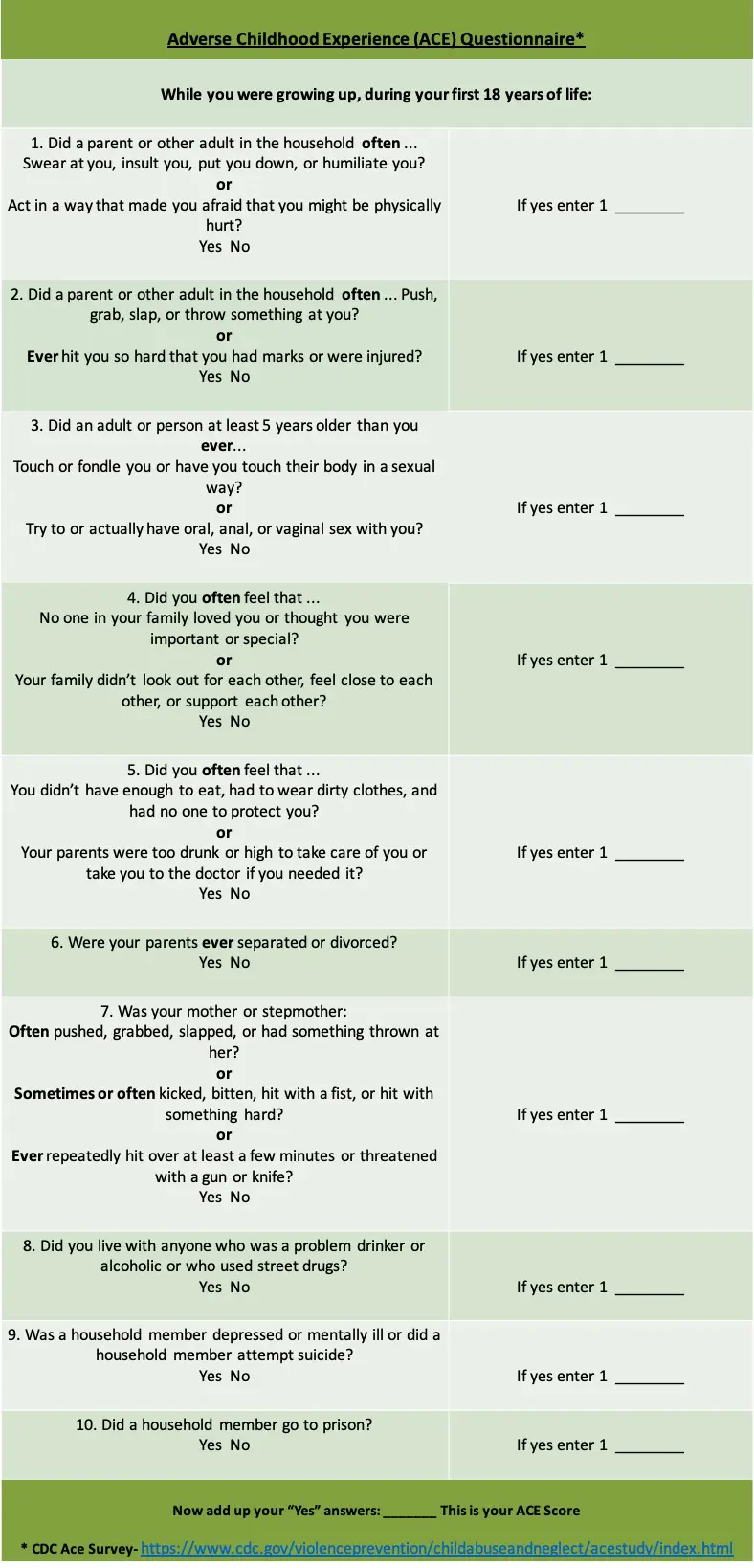ACE stands for “Adverse Childhood Experiences,” which accesses traumatic experiences you had during childhood, such as domestic violence or sexual abuse. ACE scores range on a scale from 0 to 10, with a higher score indicating more negative childhood experiences. You can see your ACE score by taking the short quiz here:

The higher your ACE score, the higher your likelihood of developing various side effects, such as an increased risk of smoking, drinking, developing diabetes, and even cancer. This article describes some of emotional, behavioral, and health side effects that occur with higher ACE scores. If you have an ACE score of 4 or more, you are not alone. In fact, 1 in 6 people report an ACE score of 4 or more (Psychology Today).
It is important to note that although your risk of developing health challenges increases as your ACE score increases, it is certainly not destiny. There are a lot of things that can be done to reduce your risk, such as regularly practicing meditation, exercising, eating a healthy balanced diet, taking time off, spending time with others in your community, and/or seeking out help from a mental health provider. Resilient Retreat provides services like these at no costs to survivors. For information on the programs we currently offer or to sign up, see below:
